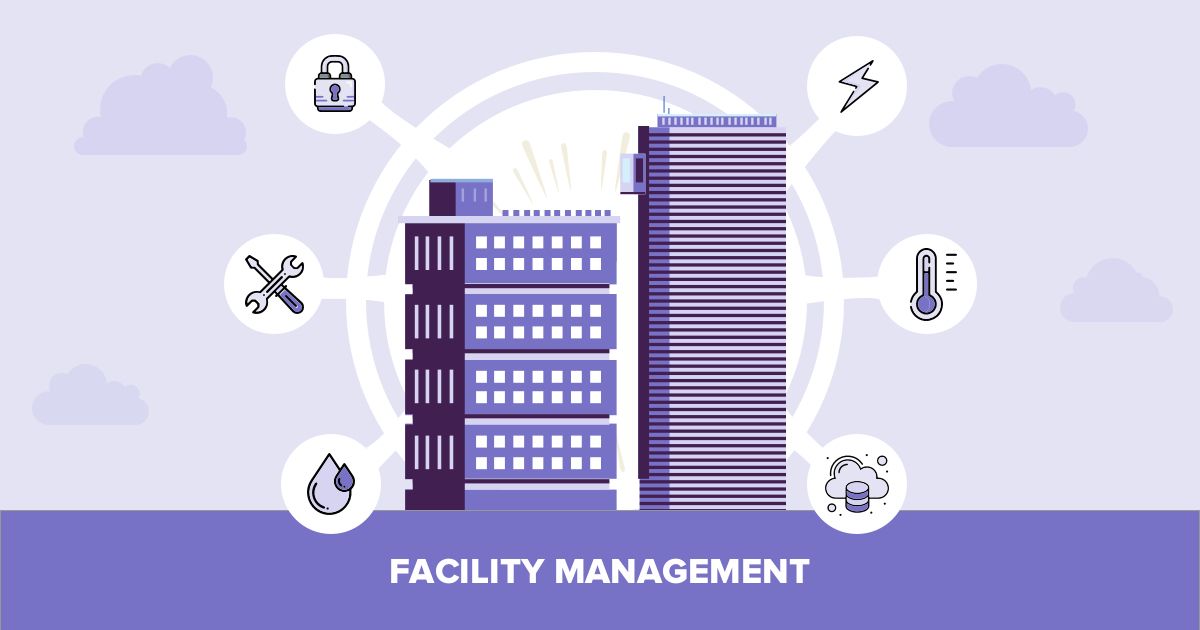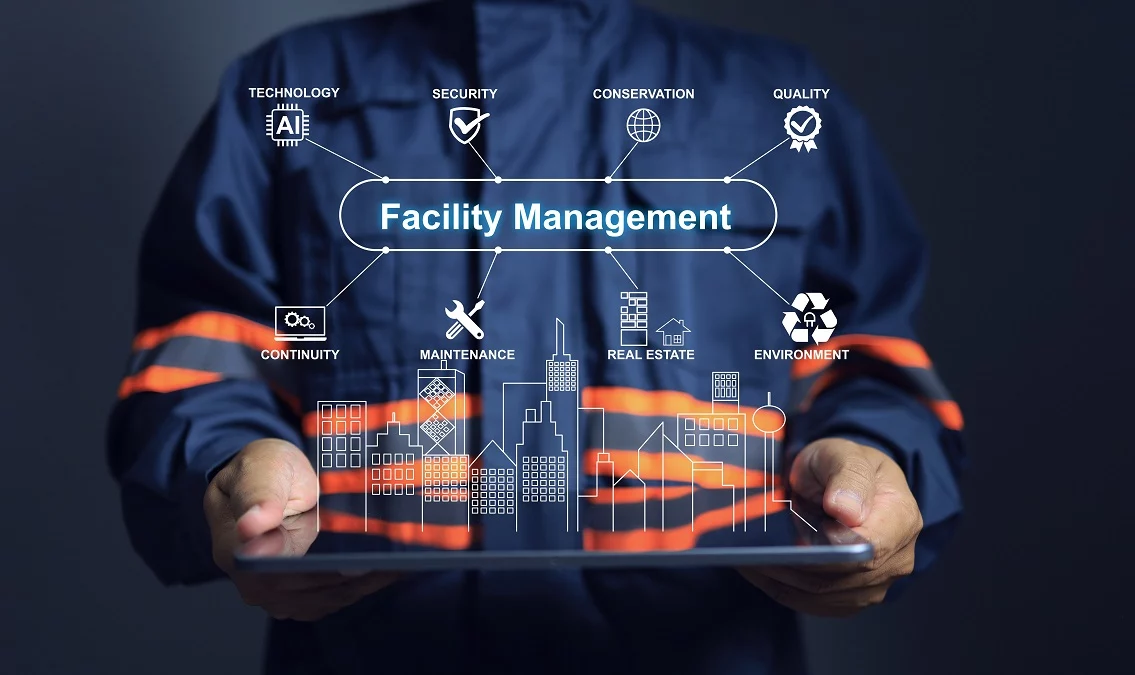Maximize Effectiveness and Security: Ideal Practices in Facility Administration
In today's quickly progressing landscape, taking full advantage of effectiveness and security in center management has actually ended up being an important focus for organizations aiming to improve operational performance. By integrating smart modern technology, prioritizing upkeep procedures, and cultivating a culture of safety and security, center supervisors can considerably boost both efficiency and conformity.
Embrace Smart Technology
In today's rapidly evolving landscape of facility management, the assimilation of wise innovation has come to be a crucial facet of operational efficiency and sustainability. Embracing innovative modern technologies such as the Internet of Points (IoT), expert system (AI), and information analytics can considerably boost facility management methods. These technologies facilitate real-time tracking and control of structure systems, enabling supervisors to optimize power use, minimize functional expenses, and enhance total security.
Applying clever sensors and automation systems permits exact monitoring of environmental conditions, occupancy degrees, and equipment efficiency. This data-driven approach not only notifies decision-making but also sustains anticipating maintenance, reducing downtime and expanding property life. Wise innovation boosts user experience by developing flexible settings that respond to the demands of residents.
Integrating wise systems also promotes sustainability campaigns, such as energy-efficient lights and cooling and heating systems, adding to lowered carbon footprints. By embracing these innovations, facility managers can ensure that their operations continue to be affordable, durable, and straightened with contemporary sustainability objectives. Inevitably, the shift towards clever modern technology represents a transformative action in redefining center monitoring for an extra reliable and sustainable future.
Prioritize Routine Upkeep
Establishing a routine upkeep schedule is crucial. This need to consist of routine assessments, servicing, and essential repair services for all devices, cooling and heating systems, plumbing, and electric systems. Utilizing a computerized maintenance monitoring system (CMMS) can enhance this process, providing tracking and notifies for upcoming maintenance jobs.
Moreover, cultivating a culture of liability among personnel boosts the performance of upkeep efforts. Training employees to identify and report maintenance problems can lead to aggressive administration as opposed to responsive feedbacks. In addition, documenting upkeep tasks guarantees conformity with security regulations and offers beneficial understandings for future preparation.
Implement Safety Training Programs
A detailed safety and security training program is necessary for promoting a secure workplace in any type of facility - Facility Management. Such programs equip employees with the expertise and abilities necessary to determine threats, execute safety protocols, and respond efficiently in emergency situations. By prioritizing safety and security training, organizations can dramatically reduce the risk of injuries and accidents, consequently improving overall productivity
To execute an efficient security training program, it is essential to tailor the content to the certain requirements of the facility and its procedures. This includes carrying out a complete risk analysis to identify possible dangers unique to the workplace. Training needs to incorporate a range of subjects such as proper devices use, emergency situation emptying treatments, redirected here and initial help techniques.
In addition, it is vital to engage employees actively throughout training sessions. Making use of real-life circumstances and hands-on demos can enhance understanding and retention of security practices. Normal correspondence course need to also be set up to keep security understanding at the forefront.
Optimize Space Usage
Reliable space utilization is a crucial component of facility monitoring that straight impacts functional efficiency and cost-effectiveness. Organizations commonly fight with underutilized or chock-full rooms, causing inefficiencies and increased costs. To optimize space utilization, center supervisors ought to conduct regular evaluations to determine just how rooms are presently being utilized and where renovations can be made.
Applying adaptable work area styles, such as open office formats or modular furniture, can considerably enhance flexibility to changing requirements. In addition, leveraging technology, such as space management software program, can supply useful understandings right into tenancy patterns and help identify underused locations.
One more best method is to develop clear zoning within the facility, ensuring that different features are rationally arranged to reduce disturbance and maximize performance. Additionally, encouraging a culture of collaboration can lead to far better space-sharing methods among teams, therefore improving general efficiency.
Establish Clear Communication Channels
Enhancing space utilization frequently discloses the demand for robust interaction strategies within a facility. Clear communication networks are critical for facilitating efficient cooperation amongst staff, maintenance groups, and monitoring. By developing these channels, center managers can make sure that information flows seamlessly pertaining to space use, operational changes, and safety protocols.
Carrying out a multi-faceted interaction strategy-- integrating electronic platforms, such as emails and team collaboration tools, with in person communications-- can significantly boost engagement and information dissemination. Normal conferences should be set up to review ongoing projects, address concerns, and share updates. Furthermore, creating a centralized information center, such as an intranet, permits workers to access essential papers and announcements easily.
Additionally, feedback mechanisms are necessary to gauge the efficiency of communication methods. Motivating personnel to share their insights can result in click reference renovations and cultivate a culture of visibility. Educating programs concentrated on communication skills can additionally encourage workers to share details clearly and efficiently.
Ultimately, developing clear communication channels not only takes full advantage of efficiency but additionally enhances security by making sure that every person is educated and aligned with the center's operational goals. (Facility Management)

Verdict
In final thought, the integration of smart innovation, regular upkeep, detailed safety and security training, enhanced space application, and effective interaction networks jointly boosts efficiency and safety in facility monitoring. These best techniques offer as crucial components for efficient facility administration.
In today's quickly developing landscape, making the most of effectiveness and safety and security in facility management has come to be a vital focus for companies striving to enhance functional efficiency. By incorporating clever innovation, prioritizing upkeep procedures, and cultivating a culture of safety and security, center managers can dramatically boost both performance and conformity.To execute a reliable security read the full info here training program, it is vital to tailor the content to the particular needs of the center and its operations. By establishing these networks, center managers can guarantee that info flows flawlessly regarding space use, operational modifications, and security methods.
